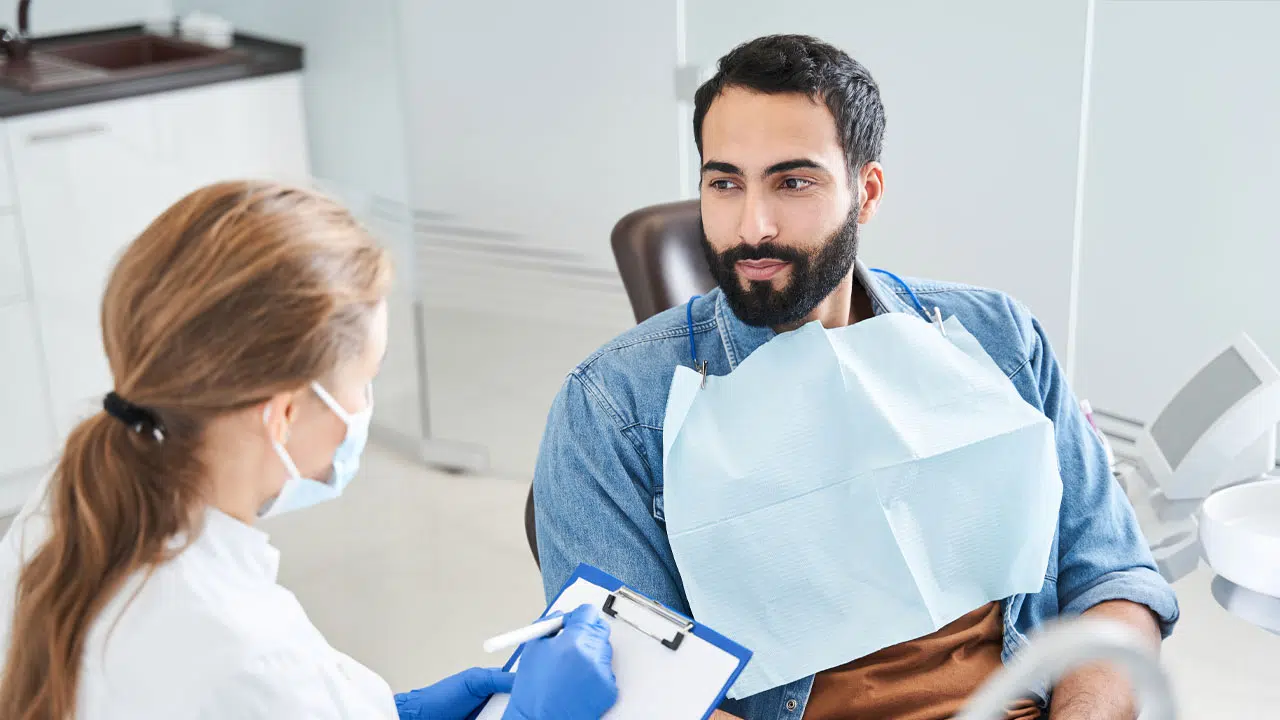
Drooling occurs when saliva spills over the bottom lip. It can be embarrassing, lead to bad breath, and may be a choking hazard. The causes of excess saliva, or hypersalivation, are either temporary or continual.
Temporary hypersalivation is the result of many underlying conditions which need to be treated before hypersalivation ceases. Continual hypersalivation occurs as a symptom of chronic health conditions that affect motor control which often have no cure. However, symptom management decreases continual hypersalivation.
Causes of Temporary Hypersalivation
Temporary hypersalivation causes chapped lips, bad breath, speech disturbance, and a bad sense of taste. Fortunately, once you determine its cause, treatment can eliminate temporary hypersalivation.
1. Infections and cavities
Mononucleosis, nasal infections, and cavities all create excess saliva. Saliva naturally removes bacteria from your mouth. When you have an infection or cavity, excess saliva production keeps your mouth bacteria-free. Treat infections with antibiotics and cavities with composite fillings to reduce hypersalivation.
2. Pregnancy
Temporary hypersalivation is a common side effect of pregnancy. The salivary glands are overstimulated, which leads to excess salivation. This often accompanies morning sickness in pregnant women. After giving birth, salivation levels should return to normal.
3. Drugs and toxins
Antipsychotics are the primary drug type that cause excessive saliva. Mercury and thallium are heavy-metal toxins that also cause hypersalivation. Mercury can be found in many water sources and some seafood, while thallium is present in cigarettes and hazardous waste. Some organophosphate insecticides can also cause hypersalivation.
Once these compounds are out of your system, increased salivation should stop. Chelation is the primary way to eliminate high levels of heavy metals from your body. However, if your medications are meant for sustained use, ask your doctor about hypersalivation symptom management.
4. Gastroesophageal reflux disease (GERD)
GERD causes stomach acid to flow backward into your esophagus. This prompts your salivary glands to increase saliva production to keep any acid and bacteria out of your mouth. Medication and lifestyle changes reduce GERD and decrease hypersalivation.
Causes of Continual Hypersalivation
Chronic hypersalivation will not go away because its causes can not be treated. Symptom management, such as pharmaceutical medicines, speech therapy, and surgery, are available to reduce excess salivation. If left untreated, continual hypersalivation can become a choking hazard and can affect your mental health.
5. Neurological Disorders
Any disorder that makes it hard to control mouth muscles and the tongue can result in excess saliva. Rather than the mouth creating too much saliva, the problem is that a person can not get rid of the saliva by swallowing.
Cerebral palsy, facial nerve palsy, and Parkinson’s are a few examples of neurological disorders that cause hypersalivation. Oral-motor therapy can help patients learn how to swallow. Surgery and medication can reduce the amount of saliva the patient produces.
6. Stroke
Post-stroke symptoms include both the overproduction of saliva and trouble swallowing saliva. Drooling can also be a sign that a person is currently having a stroke.
Excess Saliva is Manageable
Whether you require medication and therapy or cavity treatment, there are ways to reduce hypersalivation. If excess saliva affects your life, visit a dentist to learn about ways to treat it.
For more information about dental hygiene, visit Valley Dental Care of Plainfield. Check out our blogs for informational content on mouth health and dentistry.